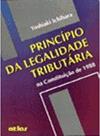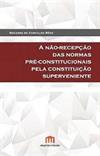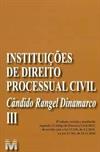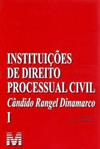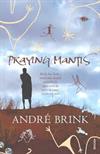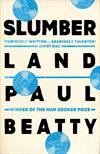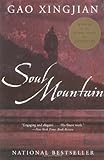
Soul Mountain
3 journalers for this copy...
This author is a winner of the Nobel Prize for Literature
trade paperback.
trade paperback.
Loosely based on the author's journey in rural China, which was inspired by a false diagnosis of lung cancer. The novel is a part autobiographical, part fictional account of a man's journey, commencing in the forests of Sichuan province and continuing along the Yangtze River to the coast. The protagonist ostensibly searches for Lingshan (Soul Mountain), but in fact the novel describes one man's quest for inner peace and freedom.
Confusing, bewildering, laborious - - I just about gave up on this book several times, and now wish I had.
Confusing, bewildering, laborious - - I just about gave up on this book several times, and now wish I had.
Sending this book to HI77 in Florida as part of a trade.
With the kiss of death
still wet upon his lips,
he runs!
still wet upon his lips,
he runs!
I have to admit, I was a little startled by the thickness of this book. So I decided look into opinions on this book, in hopes of engaging a deeper interest.
I thought this review I found on Amazon explains a lot about the mixed opinions on this book and wanted to share it:
"By M. Liu - March 27, 2003
This has to be one of the most controversial books on the market. Either you love it or hate it, as reflected by ratings from 1 to 5 stars. I read the book first in Chinese (my first language), then in English, and I think I can partially explain this contradiction.
The central theme of the book is straightforward. A dying man goes on a quest for adventure and closure. The reason he chose to go to the Soul Mountain is purely coincidental, he heard the name casually mentioned by a fellow traveler on the train. We can only speculate that he was drawn to the "Soul" mountain in the hope of finding some spiritual enlightening and the meaning of his own existence.
The Soul Mountain (Lingshan) continues to elude Gao, and the closest thing he ever got to is the Soul Rock (Lingyan) where women burn incense when they want to have sons. Unlike many other readers, I could not detect any deep moral or religious questioning on the part of the author, nor is there a spiritual awakening in this book.
What has captivated me is Gao's lyrical description of the amazing landscape, the villagers, the Taoist priests, the monks and the hermits who live in the deep mountains and back woods. He reflects fleetingly on his past, full of memories of political persecution, failures in love and relationships, lack of fulfillment, and wrestles with his own demons of loneliness and homesickness. I am moved by his irrepressible sadness whenever he encounters remnants of his childhood: ponds with floating duckweed, arched stone bridges, small town wine shops---.I am dazzled by Gao's masterful use of both traditional and modern Chinese prose, his subtle sense of humor, irony, drama, mystery and his knowledge of history and folklore.
Gao's alternative use of "I." "you" and "He" does not bother me. In my mind's eye, I see the same person. But I find his jumps from reality to fantasy, from the mystic mountain to the sizzling bedroom a bit disorienting. His haunting nightmares and his philosophical rambling remind me of Avant Garde paintings. One gets a sense of power, but not beauty.
I read the Chinese version of the book first and loved it. However, when I read the English translation, I felt something was lost. It was not the fault of the translator, but the huge problem of uprooting a monumental work from its native land and transplanting it in a foreign soil. It is therefore surprising to me that so many Western readers are able to enjoy this remarkable piece of literature.
The matter of women in Gao's writing requires some cultural context. By tradition, the mainstream Chinese writers have been reticent about the matter of sex. Serious writers did not engage in description of sexual love. But as a modern writer, Gao probably feel obliged to break this taboo, although in my opinion, he probably does not feel comfortable about it, nor is this one of the more successful aspects of the book. The women in Gao's book are hard for the Westerners to relate. One book reviewer at Amazon.com described these women as "deranged or hysterical drama queens of the highest order."
When reading this book, it is important to consider the social context it was written in. For more than 3 decades beginning from 1949, the only art form allowed in China was the exultation of the victory of the Communist revolution and the greatness of Mao Zedong. It is to Gao's credit that he was able to create his own unique writing style, despite this very difficult creative climate.
If "uniqueness," "power" and "craftsmanship" are the chief criteria by which art should be evaluated, then Gao deserves the highest honor possible bestowed upon him.
H. Mei Liu, M.D., author of GRANDFATHER'S MICROSCOPE"
I thought this review I found on Amazon explains a lot about the mixed opinions on this book and wanted to share it:
"By M. Liu - March 27, 2003
This has to be one of the most controversial books on the market. Either you love it or hate it, as reflected by ratings from 1 to 5 stars. I read the book first in Chinese (my first language), then in English, and I think I can partially explain this contradiction.
The central theme of the book is straightforward. A dying man goes on a quest for adventure and closure. The reason he chose to go to the Soul Mountain is purely coincidental, he heard the name casually mentioned by a fellow traveler on the train. We can only speculate that he was drawn to the "Soul" mountain in the hope of finding some spiritual enlightening and the meaning of his own existence.
The Soul Mountain (Lingshan) continues to elude Gao, and the closest thing he ever got to is the Soul Rock (Lingyan) where women burn incense when they want to have sons. Unlike many other readers, I could not detect any deep moral or religious questioning on the part of the author, nor is there a spiritual awakening in this book.
What has captivated me is Gao's lyrical description of the amazing landscape, the villagers, the Taoist priests, the monks and the hermits who live in the deep mountains and back woods. He reflects fleetingly on his past, full of memories of political persecution, failures in love and relationships, lack of fulfillment, and wrestles with his own demons of loneliness and homesickness. I am moved by his irrepressible sadness whenever he encounters remnants of his childhood: ponds with floating duckweed, arched stone bridges, small town wine shops---.I am dazzled by Gao's masterful use of both traditional and modern Chinese prose, his subtle sense of humor, irony, drama, mystery and his knowledge of history and folklore.
Gao's alternative use of "I." "you" and "He" does not bother me. In my mind's eye, I see the same person. But I find his jumps from reality to fantasy, from the mystic mountain to the sizzling bedroom a bit disorienting. His haunting nightmares and his philosophical rambling remind me of Avant Garde paintings. One gets a sense of power, but not beauty.
I read the Chinese version of the book first and loved it. However, when I read the English translation, I felt something was lost. It was not the fault of the translator, but the huge problem of uprooting a monumental work from its native land and transplanting it in a foreign soil. It is therefore surprising to me that so many Western readers are able to enjoy this remarkable piece of literature.
The matter of women in Gao's writing requires some cultural context. By tradition, the mainstream Chinese writers have been reticent about the matter of sex. Serious writers did not engage in description of sexual love. But as a modern writer, Gao probably feel obliged to break this taboo, although in my opinion, he probably does not feel comfortable about it, nor is this one of the more successful aspects of the book. The women in Gao's book are hard for the Westerners to relate. One book reviewer at Amazon.com described these women as "deranged or hysterical drama queens of the highest order."
When reading this book, it is important to consider the social context it was written in. For more than 3 decades beginning from 1949, the only art form allowed in China was the exultation of the victory of the Communist revolution and the greatness of Mao Zedong. It is to Gao's credit that he was able to create his own unique writing style, despite this very difficult creative climate.
If "uniqueness," "power" and "craftsmanship" are the chief criteria by which art should be evaluated, then Gao deserves the highest honor possible bestowed upon him.
H. Mei Liu, M.D., author of GRANDFATHER'S MICROSCOPE"
This lucky little book has become part of a book trade with another great BC'er on here! :)
Wow... this book itself is a mountain! lol
I loved the cover on it, but main is a book this size daunting! And it really was a commitment to read too! I won't say that I thought it was enthralling, because I didn't. But it was interesting.
I would say to future readers to not view it as typical book with a beginning, middle and end. It meanders and I think it was meant to. You follow the main character through his travels and experiences. Most of it doesn't seem to have a point, except to tell you what he found when he got there.
And so there is the point of it. It's like a prettily told traveloge of China's inner parts in a certain time period. Parts most of us would never see or have access too. It's also a time capsule for a land that has gone through many changes.
So if you have interest in China and love listening to travelers tales, this is a great book to read without looking for direction. You meader, just like the main character. And that is all.
Wow... this book itself is a mountain! lol
I loved the cover on it, but main is a book this size daunting! And it really was a commitment to read too! I won't say that I thought it was enthralling, because I didn't. But it was interesting.
I would say to future readers to not view it as typical book with a beginning, middle and end. It meanders and I think it was meant to. You follow the main character through his travels and experiences. Most of it doesn't seem to have a point, except to tell you what he found when he got there.
And so there is the point of it. It's like a prettily told traveloge of China's inner parts in a certain time period. Parts most of us would never see or have access too. It's also a time capsule for a land that has gone through many changes.
So if you have interest in China and love listening to travelers tales, this is a great book to read without looking for direction. You meader, just like the main character. And that is all.
This book arrived safely along with all of its friends! Thanx a bunch.
